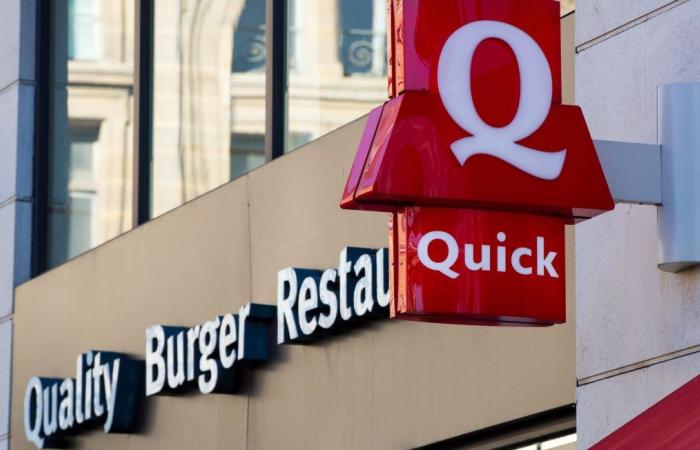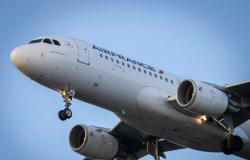It’s a little taste miracle that Hugo no longer believed in and yet: for several years, Quick has been trying to make a strong comeback in France. Between 2021 and 2024, the brand went from 107 restaurants to more than 150, including 17 new strongholds for 2023 alone. Enough to please this thirty-something fan since childhood, for whom Long Chicken is the best burger of the world and the Giant’s sauce is among the top inventions of Humanity, somewhere between the printing press and the wheel.
If Hugo’s stomach was just asking to be won back, Quick’s return may raise questions. Why try to come back now, and is there still a place available? Since its slow death in the 2010s, when Burger King replaced the majority of the 400 brands at the time, the burger market has certainly never been so buoyant. Sales have increased 14-fold over the last ten years, reports Bernard Boutboul, founder of the Gira firm, a catering specialist. The country now consumes more than two billion hamburgers each year, the second best-selling type of food behind sandwiches.
Saturated market or dynamic market?
But the market has never been so full of fierce competition. 80% of the 1,400 table service restaurants, excluding fast food, have at least one burger on the menu, lists Bernard Boutboul. And fast food hasn’t been twiddling its thumbs while Quick has been sitting on its hands either: KFC, Popeye’s, Five Guys have become so many daily busts. Can the little Belgian really come back to life in this world of burgers which is already bordering on indigestion? Yes, wants to believe the company, which lists the good economic news.
Its turnover has increased by 100% in three years to now reach 500 million euros, reports Frédéric Levacher, CEO of the group. Between seeing a saturated market and a buoyant market, the manager chose optimism: “Everyone goes to a fast-food restaurant at least once a year, out of desire, out of convenience, for scheduling reasons. . The sector is so dynamic that there is still a part for us. »
Proust’s Madeleine and healthy competition
Especially since “it’s not a simple market: you can go one day for a Big Mac and the next day eat at Quick,” reassures the boss of the Giant. Even Hugo admits to some infidelity with his darling Quick. And while we’re on the topic of perjured confessions, he also prefers McDonald’s fries. “You don’t go to McDonald’s like you go to KFC or like you go to Quick,” assures Romain, a big fan of fast food at the age of 34, who has enough heart and stomach for everything the world. The fried chicken box with the group of friends, the McDonald’s for a “date” with your best friend and the Quick with family. “As a customer, I don’t think there can be too many offers. And neither as a father. Of course children have their preferences but they also like to vary. »
Families and young adults – between 25 and 35 years old – represent Quick’s core target, who readily admits to riding a certain nostalgia. Hugo admits, the Long Chicken is as much a taste summit as a Proust madeleine: “It reminds me of my childhood when my father used to take me there. » Just look at the star stars highlighted in 2024 – Tony Parker and others Eric & Ramzy – “stars that are still very current”, defends Frédéric Levacher, “but who also shined in the early 2000s”.
Can halal alone make a difference?
There remains a “major” argument according to Bernard Boutboul which could perpetuate the Giants: “Quick is identified as halal fast food. However, it is an extremely dynamic market: it sells six times more than organic products, for example. A Halal certified Quick sees its turnover multiplied by two or even three. » Enough to find a place in the sun without the shadow of competition? Within the Belgian franchise, we assure you that we have other arguments to put forward, just as – and even more – important: innovation in burgers, taste, a loyal and loving community who were waiting for this return…
For Clémentine Hugol-Bential, professor and specialist in contemporary food issues at the University of Burgundy, it is certain that “halal alone or nostalgia will not be enough. Quick must create a new brand image, the old one being damaged. The chain cannot simply attract nostalgic fans and their children; it will necessarily have to win over new customers. »
Frédéric Levacher recognizes it: the brand is still struggling to attract teenagers, who constitute the hole in the racket between the melancholy thirty-somethings of Quick & Toast and their kids. However, this is an essential target, training the future young adults and families of tomorrow, the core of the clientele. A strategy more focused on digital, networks and more evocative name dropping for teenagers is planned. The only way for Quick to truly make a comeback this time.






